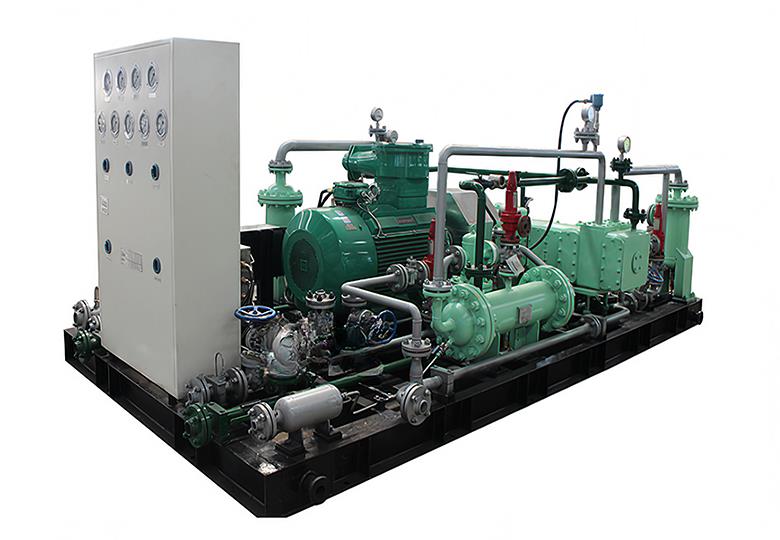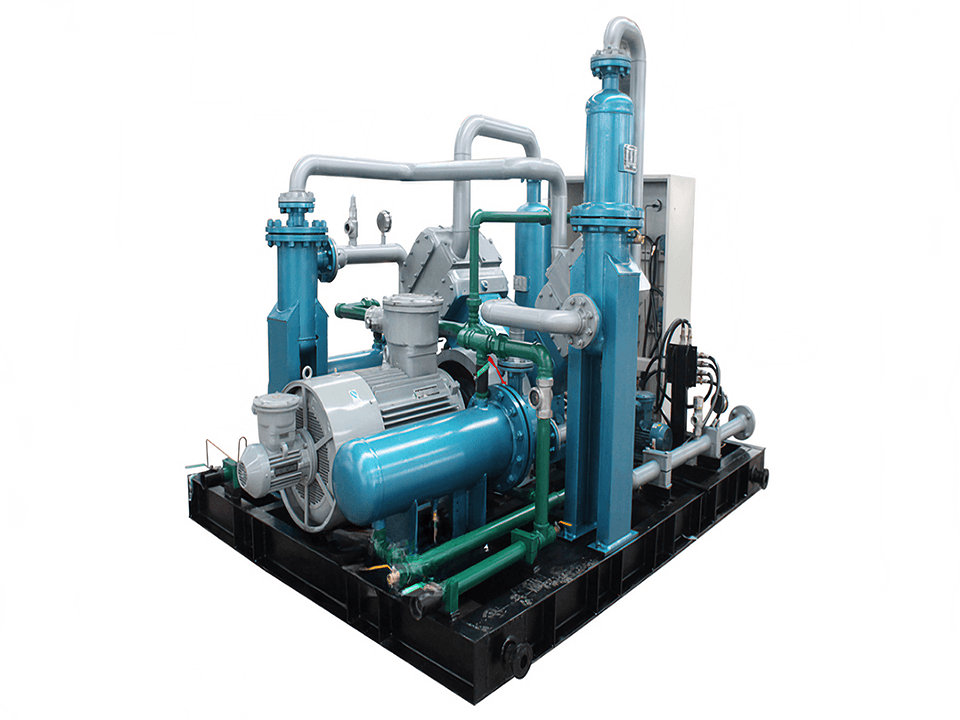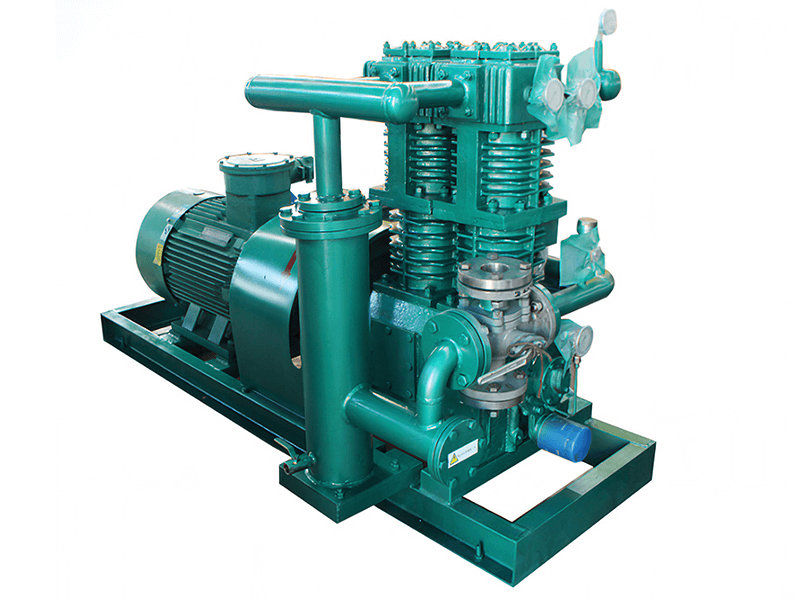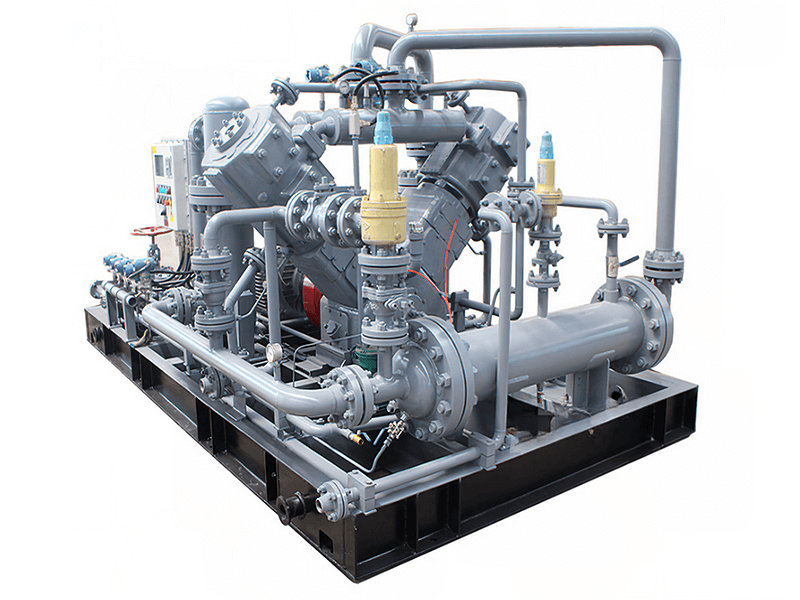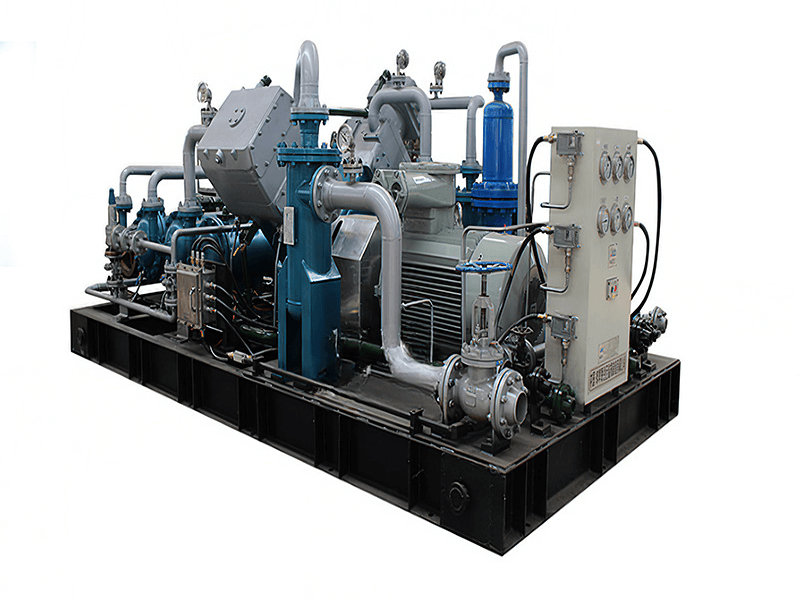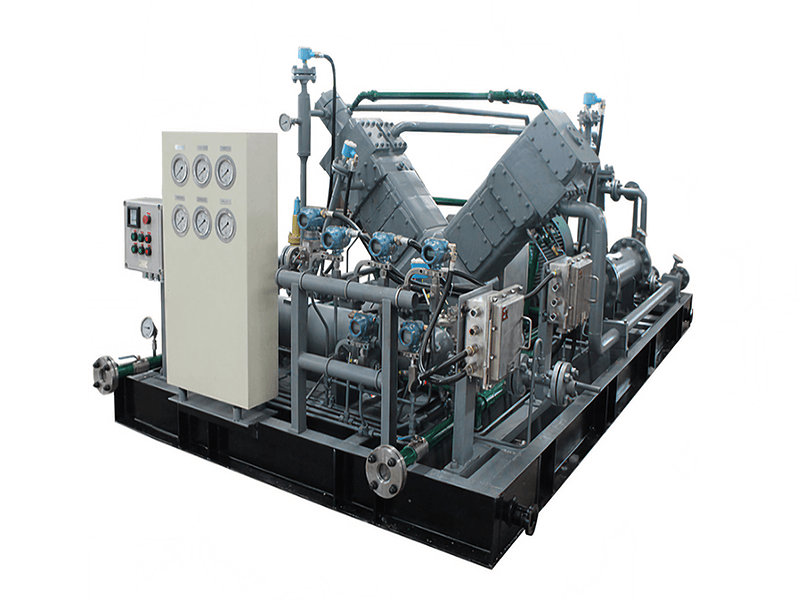Rich gas recovery has several applications and benefits in the oil and gas industry. Here are some key applications of rich gas recovery:
1. Hydrocarbon Extraction: Rich gas recovery allows for the extraction of valuable hydrocarbon components from natural gas streams. It involves capturing and separating the heavier hydrocarbons, such as ethane, propane, butane, and pentane, that are present in the gas stream. These components have commercial value and can be used as feedstock for various industries, including petrochemicals, plastics, heating fuels, and liquefied petroleum gas (LPG).
2. Petrochemical Industry Feedstock: The recovered rich gas components serve as important feedstocks for the petrochemical industry. Ethane, propane, and butane are essential raw materials for the production of plastics, synthetic fibers, solvents, and other chemicals. Rich gas recovery ensures a reliable supply of these feedstocks, supporting the growth and sustainability of the petrochemical sector.
3. Energy Generation: Rich gas components, particularly propane and butane, can be used as fuels for energy generation. They are commonly utilized for heating applications, power generation in remote areas, and as alternative fuels for industrial processes. Recovering and utilizing these components through rich gas recovery contributes to energy security and diversification.
4. Liquefied Petroleum Gas (LPG) Production: Rich gas recovery plays a crucial role in LPG production. LPG is a mixture of propane and butane, which are liquefied under certain temperature and pressure conditions for ease of storage, transportation, and distribution. LPG is widely used for residential and commercial heating, cooking, and as a fuel for vehicles.

5. Environmental Benefits: Rich gas recovery has environmental advantages by reducing greenhouse gas emissions and minimizing waste. When the heavier hydrocarbon components in the gas stream are recovered and utilized, it reduces the need for their production from other sources, such as crude oil or separate natural gas liquids (NGL) extraction processes. This reduces overall carbon footprint and environmental impact associated with extracting and refining additional hydrocarbon sources.
6. Enhanced Resource Utilization: Rich gas recovery optimizes the utilization of natural gas resources. By extracting and recovering the heavier hydrocarbons present in the gas stream, it ensures that a broader range of hydrocarbon components is utilized rather than being left unused or flared. This enhances energy efficiency and reduces waste, making better use of the available resource.
Rich gas recovery also has applications in industrial processes. Here are some examples:
1. Industrial Heating: The recovered rich gas components, such as propane and butane, can be used as fuels for industrial heating applications. They are commonly used in furnaces, boilers, and other industrial heating systems. Rich gas recovery provides a reliable and cost-effective source of fuel for industrial processes, contributing to efficient and sustainable operations.
2. Chemical and Petrochemical Processes: The heavier hydrocarbon components obtained through rich gas recovery, such as ethane, propane, and butane, are crucial feedstocks for chemical and petrochemical industries. These components serve as raw materials for the production of various chemicals, plastics, synthetic fibers, and solvents used in industrial processes. Rich gas recovery ensures a consistent supply of these feedstocks, supporting the manufacturing of a wide range of industrial products.
3. Refining and Upgrading: Rich gas recovery can be utilized in refining and upgrading processes within the oil and gas industry. The recovered rich gas components can be processed further to remove impurities and increase their purity and quality. This enhances their value and suitability for specific applications, such as meeting stricter product specifications or serving as premium feedstocks for specialized refining processes.
4. Combustion Processes: The rich gas components can be used in combustion processes for energy generation. They can be employed in gas turbines or combined heat and power (CHP) systems to produce electricity and heat for industrial facilities. Rich gas recovery contributes to efficient and cleaner energy generation in industrial settings.
5. Industrial Gases: Some rich gas components, such as methane and ethane, can be used in the production of industrial gases. For example, methane is a key component in the production of hydrogen, which is widely used in various industrial processes, including refineries, chemical manufacturing, and the production of ammonia and methanol.
6. Specialty Applications: Rich gas recovery can provide specific hydrocarbon components required for specialty applications in industries such as pharmaceuticals, electronics, and precision manufacturing. These components may be used as raw materials or as part of specialized processes that require precise control of the gas composition.
In summary, rich gas recovery is beneficial for industrial processes by providing a reliable source of fuel, feedstocks for chemical production, refining and upgrading capabilities, and supporting specialized applications in various industries. It contributes to energy efficiency, cost-effectiveness, and sustainability in industrial operations.


